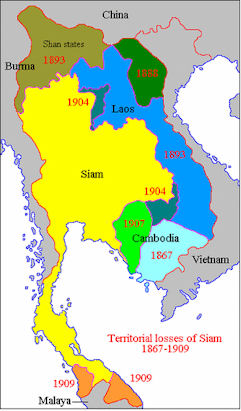

Zitierweise / cite as:
Payer, Alois <1944 - >: Chronik Thailands = กาลานุกรมสยามประเทศไทย. -- Chronik 1875 (Rama V.). -- Fassung vom 2017-01-28. -- URL: http://www.payer.de/thailandchronik/chronik1875.htm
Erstmals publiziert: 2013-09-11
Überarbeitungen: 2017-01-28 [Ergänzungen] ; 2016-12-02 [Ergänzungen] ; 2016-04-29 [Ergänzungen] ; 2015-12-28 [Ergänzungen] ; 2015-09-30 [Ergänzungen] ; 2015-08-23 [Ergänzungen] ; 2015-04-22 [Ergänzungen] ; 2015-03-07 [Ergänzungen] ; 2015-02-21 [Ergänzungen] ; 2014-12-21 [Ergänzungen] ;2014-12-03 [Ergänzungen] ; 2014-03-01 [Ergänzungen] ; 2014-01-13 [Ergänzungen] ; 2013-11-05 [Ergänzungen] ; 2013-10-11 [Ergänzungen] ; 2013-09-14 [Ergänzungen]
©opyright: Dieser Text steht der Allgemeinheit zur Verfügung. Eine Verwertung in Publikationen, die über übliche Zitate hinausgeht, bedarf der ausdrücklichen Genehmigung des Herausgebers.
Dieser Text ist Teil der Abteilung
Thailand von
Tüpfli's Global Village Library
ช้างตายทั้งตัวเอาใบบัวปิดไม่มิด
|
Gewidmet meiner lieben Frau Margarete Payer die seit unserem ersten Besuch in Thailand 1974 mit mir die Liebe zu den und die Sorge um die Bewohner Thailands teilt. |
|
Bei thailändischen Statistiken muss man mit allen Fehlerquellen rechnen, die in folgendem Werk beschrieben sind:
Die Statistikdiagramme geben also meistens eher qualitative als korrekte quantitative Beziehungen wieder.
|
1875
Schaffung einer einheitlichen Behörde für Staatseinnahmen (Public Revenue Development Chamber). Es ist die erste Behörde nach westlichem Muster: die Beamten haben feste Gehälter und ihre Arbeitsstunden sind festgelegt.
1875/1876
Per Dekret wird die öffentliche Primarschule unter königlichem Patronat auf alle Königsklöster (พระอารามหลวง) ausgedehnt. Das Dekret schein wirkungslos zu sein.
1875
Siam stationiert in Phuket [ภูเก็ต] und Luang Prabang [ຫຼວງພະບາງ] erstmals je einen Kommissar. Der Kommissar für Phuket ist auch zuständig für alle westlichen Küstenprovinzen.
"In 1875 the government established the commissionership of Phuket [ภูเก็ต], in order to prevent British intervention in the Malay tributary states, the internal affairs or which were often unstable, and the southern inner provinces, in which the over-rapid development of the tin-mining industry had strained relations between management, which was in the hands of the governors, and labour, which was made up of Chinese immigrants.
In the same year, in order to support Luang Prabang's [ຫຼວງພະບາງ] efforts to reassert control over its tributaries in the Hua Phan Thang Ha Thang Hok [หัวพันทั้งห้า ทั้งหก], which had been overrun by the Chinese bandits known as the Hos [ฮ่อ / ຮໍ່ / خُوِذُو / حواري / 回族], it stationed a commissioner in that north-eastern Kingdom.
[Quelle: Tej Bunnag [เตช บุนนาค] <1943 - >: The provincial administration of Siam from 1892 to 1915 : a study off the creation, the growth, the achievements, and the implications for modern Siam, of the ministry of the interior under prince Damrong Rachanuphap. -- Diss. Oxford : St. Anthonys College, Michaelmas Term 1968. -- 429 S., Schreibmaschinenschrift. -- S. 102. -- Faire use]
"In 1875, the government sent a commissioner to Phuket [ภูเก็ต], who, besides keeping watch on the Malay tributary states and the labour disputes in this tin-mining region, also supervised the collection of the revenue from the tax-farms of the southern provinces. The government had a good excuse to intervene in the local fiscal administration. It wanted to make sure of the revenue from the tax-farms of Phuket which had increased twenty-four fold between 1872 and 1875. The yield from the tax-farms of the other southern provinces had also increased in proportion to their size and prosperity. This extraordinary rise in the revenue was caused by the fact that the governors of these towns, in order to outbid a Singapore Chinese merchant called Tan Kim Ching [陳金鐘甲, 1829 - 1892], had to offer higher sums for the tax-farms than formerly. By making higher bids, they retained control over the local fiscal administration which was the vital component of their political power. The commissioner of Phuket, unlike their contemporaries elsewhere, sent the revenue to Bangkok." [Quelle: Tej Bunnag [เตช บุนนาค] <1943 - >: The provincial administration of Siam from 1892 to 1915 : a study off the creation, the growth, the achievements, and the implications for modern Siam, of the ministry of the interior under prince Damrong Rachanuphap. -- Diss. Oxford : St. Anthonys College, Michaelmas Term 1968. -- 429 S., Schreibmaschinenschrift. -- S. 117f. -- Faire use]
1875 - 1909
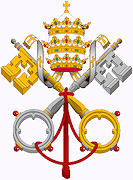
Der katholische Bischof Jean-Louis Vey (1840 - 1909) ist Apostolischer Vikar für Ost-Siam.
1875 gibt es in Siam:
- 11.000 Katholiken
- 17 europäische Priester
- 7 einheimische Priester
- 30 Kirchen
1875/76
Rede von Phraya Suryaphakdi (สูรยภักดิ ?) vor Steuereinnehmern:
"The person who leads the army to seize and destroy the enemy will become an official instrument of the royal virtue...
- He must have an extensive knowledge of government.
- Following the system of military science for exact battle organization, he must have tricks to use in strategem.
- He must enjoy the trust of officers and men, be resolved against defeat and downright confident in his handling of men.
- He must observantly estimate losses and gains.
- He must not be careless, timid nor foolhardy.
- He must know elephantrophy, equestrianism, transport and the allocation of property. [stores? booty?]
- He must nurture and encourage his men so that they are brave, cheerful and willing to unite together.
- He must know bad omens and the good omens of victory.
- He must be familiar with the characteristics of battle and the ten aspects of battle-power.
- He must be skilled in the twenty-one strategems and all kinds of stockades, moats, fortifications, gates and battle-pavilions.
- He must draw yantra [ยันต์] to make our army victorious and to injure the enemy.
- He must know the magical and astrological charts, the power of weapons, and all the qualities of intoxicating poisons... so that... he will make war... without mishap.
- He must have a clear knowledge of the Art of War [ตำราพิชยสงคราม].
- He must not be forgetful of what is universally wrong.
- He must be blameless in behavior, free from anger and vindictiveness, harbor no malicious ill-will, nor be vengeful by nature.
- He must not collapse in terror in the face of danger.
- He should not be afraid always to act in moderation.
- He should not be reckless, but intelligent, reflective and inquisitive.
- He should not choose intimates who are likely to be detested.
- He should be resolutely honest.
- He should command without injustice.
Truly loyal in the king's service, such a man may be a general."
[Übersetzung: Battye, Noel Alfred <1935 - >: The military, government, and society in Siam, 1868-1910 : politics and military reform during the reign of King Chulalongkorn. -- 1974. -- 575 S. -- Diss., Cornell Univ. -- S. 50]
1875
Abb.: Raucherinnen, Lopburi (ลพบุรี), 1875
[Bildquelle: Wellcome Images. -- Creative Commons Lizenz (Namensnennung, keine kommerzielle Nutzung)]
Abb.: Raucherin, Lopburi (ลพบุรี), 1875
[Bildquelle: Wellcome Images. -- Creative Commons Lizenz (Namensnennung, keine kommerzielle Nutzung)]
Abb.: Lage von Lopburi (ลพบุรี)
[Bildquelle: OpenStreetMap. -- Creative Commons Lizenz (Namensnennung, share alike)]
ca. 1875
Abb.: Musikantinnen, ca. 1875
1875
Abb.: Siamesische Truppen in den Haw-Kriegen (สงครามปราบฮ่อ), 1875
[Bildquelle: Wikimedia. -- Public domain]
ca. 1875
Vermutlicher beginn der Einwanderung der Lahu (ล่าหู่ / มูเซอ / 拉祜族) aus Burma.
Abb.: Lebensräume der Lahu (ล่าหู่ / มูเซอ) 1970
[Bildquelle: Minority groups in Thailand / Joann L. Schrock [u. a.]. -- Washington: Headquarters, Dept. of the Army, 1970. -- 1135 S. : Ill. ; 24 cm. -- (Ethnographic study series) (Department of the Army pamphlet ; no. 550-107). -- S. 358]
Abb.: Lahu Na (Black Lahu), ca. 1900
[Bildquelle: Wikimedia. -- Public domain]
1875
Die Wohngebiete der Lu (ไทลื้อ / 傣仂 / Người Lự) in Nordthailand kommen unter siamesische Verwaltung.
Abb.: Lebensraum der Lu (ไทลื้อ) 1970
[Bildquelle: Minority groups in Thailand / Joann L. Schrock [u. a.]. -- Washington: Headquarters, Dept. of the Army, 1970. -- 1135 S. : Ill. ; 24 cm. -- (Ethnographic study series) (Department of the Army pamphlet ; no. 550-107). -- S. 416]
Abb.: Lu (ไทลื้อ), o. J.
[Bildquelle: http://www.isan.clubs.chula.ac.th/webboard/m_view.php?i_user=273&r=board&m=&start=2950&page=60. -- Zugriff am 2013-11-04. -- Fair use]
1875

Die US-Missionarsgattin Sophia Bradley McGilvary (1839 - 1923) gründet in Chiang Mai (เชียงใหม่) die Phra Rajjaya School (โรงเรียนพระราชชายา) für Mädchen. Es ist die erste Mädchenschule in Chiang Mai.
Abb.: Sophia Bradley McGilvary
Abb.: Phra Rajjaya School (โรงเรียนพระราชชายา), Chiang Mai (เชียงใหม่)
1875
Siam setzt in Luang Prabang (ຫຼວງພະບາງ) einen zeitweise residierenden (ab 1887 ständigen) Kommissar ein.
Abb.: Lage von Luang Prabang (ຫຼວງພະບາງ)
[Bildquelle: Scottish Geographical Magazine. -- 1886. -- Public domain]
1875
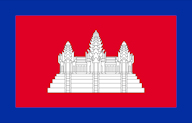
Wie schon öfters dringen siamesische Truppen in das Gebiet Kambodschas südlich von Angkor (អង្គរ) ein. Kamboscha unternimmt nichts.
Abb,; Lage von Angkor (អង្គរ)
[Bildquelle: Scottish Geographical Magazine. -- 1886. -- Public domain]
1875 - 1902

Der dänische Marineoffizier Andreas du Plessis de Richelieu (aka. Phraya Chonlayutthayothin - พระยาชลยุทธโยธินทร์, 1852 - 1932) ist im Dienst der Marine Siams. 1883 wird er Generaladjutant, 1890 Admiral, 1899 Marineminister.
Abb.: Andreas du Plessis de Richelieu (aka. Phraya Chonlayutthayothin - พระยาชลยุทธโยธินทร์), 1903
[Bildquelle: Emil Hohlenberg (1841–1901) / Wikimedia. -- Public domain]
"Andreas du Plessis de Richelieu (24 February 1852 - 25 March 1932) was a Danish naval officer and businessman who became a Siamese admiral and minister of the navy. He was granted the Thai noble title Phraya Chonlayutthayothin (Thai: พระยาชลยุทธโยธินทร์). He commanded Siamese gunboats in the Paknam Incident of July 13, 1893, that ended the Franco-Siamese War, and went on to become the first and only foreign-born commander-in-chief of the Royal Thai Navy, from 16 January 1900 to 29 January 1901.
He returned to Denmark in 1902, suffering from malaria. He died at Kokkedal House in Hørsholm and is buried at Holmens Cemetery in Copenhagen."
[Quelle: http://en.wikipedia.org/wiki/Andreas_du_Plessis_de_Richelieu. -- Zugriff am 2015-02-21]
Nach Andreas du Plessis de Richelieu ist (vielleicht) benannt der Richelieu Rock (หินริชิลิว) im Mu Ko Surin National Park (อุทยานแห่งชาติหมู่เกาะสุรินทร์)
Abb.: Lage des Richelieu Rock (หินริชิลิว)
[Bildquelle: OpenStreetMap. -- Creative Commons Lizenz (Namensnennung, share alike)]
"Richelieu Rock is a dive site in Thailand in the Andaman Sea about 200 km northwest of Phuket. It is part of the Mu Koh Surin marine park (อุทยานแห่งชาติหมู่เกาะสุรินทร์) although being about 18 km east of Surin Island. The horseshoe-shaped reef discovered by Jacques-Yves Cousteau (1910 - 1997) is known for its purple corals as well as diverse marine life ranging from small fish and harlequin shrimp to large pelagics like whale shark, manta ray, barracuda, and grouper.
Discovery and nameRichelieu Rock was discovered as a recreational scuba dive site by diving pioneer, Jacques-Yves Cousteau, with the help of local fishermen.[1] The origin of the name is disputed. Some say it was named by Cousteau after the red colour of Cardinal Richelieu's (1585 - 1642) robe due to the red to purple colours of the soft corals on the reef. Others claim it was named after General Richelieu, a commander in the Royal Thai Navy."
[Quelle: http://en.wikipedia.org/wiki/Richelieu_Rock. -- Zugriff am 2015-02-21]
1875


Der US-Missionsarzt Dr. Marion Alonzo Cheek (1853 - 1895) kommt nach Chiang Mai (เชียงใหม่). Im Lauf der Jahre sammelt er sich ein Harem von ca. 20 Frauen. Er wird zusammen mit Louis Leonowens (1856 - 1919) in einem Volkslied Nordsiams besungen:
"Dr Chitt [Cheek] and Missa Louis [Leonowens] Sleeping with two girls Two nights for fifteen rupees Miss Luang is on the bed Miss On is waiting Hurry up and finish Doctor!
Dr Chitt and Missa Louis Sleeping with two girls Two nights for fifteen rupees Miss Kum asked for silver Miss Huan asked for cloth Miss Noja asked for an elephant Hurry up and finish Doctor!"[Quelle: http://www.picturesfromhistory.com/gallery/CPA0016501-0017000/image/380/Thailand_Part_of_a_19th_century_folk_song_or_rhyme_written_in_Northern_Thai_script. -- Zugriff am 2015-04-16. -- Fair use]
Abb.: Marion Alonzo Cheek
[Bildquelle: http://archives.payap.ac.th/web/archivespyu/photo/1300343330.jpg. -- Zugriff am 2015-04-02. -- Fair use]
"DEATH OF DR. M. A. CHEEK.
A Councilor of the King of Siam Passes Away Suddenly.The Government Is Heavily Indebted to the Deceased— Facts of His Life.
Dr. Marian [richtig: Marion] A. Cheek, a pioneer American in Siam, and one of the most influential men in that kingdom, is dead, and his wife and family, who are sojourning in Oakland, have been apprised of the fact by cable.
The deceased was born in Arkansas forty-two years ago. When but a mere boy his parents moved to North Carolina, where he received his early education. At the. age of 16 he entered the Baltimore Medical College, where he graduated four years later with high honors. He decided that his life-work should be that of a medical missionary, and with that intention he set sail soon after his graduation for Siam, where he resided continuously up to the time of his death. He worked under the auspices of the Presbyterian Missionary Board.
For ten years Dr. Cheek continued his work as a physician and missionary combined, when he decided that he could do more for the natives by introducing American inventions and appliances. Accordingly he went into the general merchandise business and succeeded in becoming quite wealthy. He imported into Siam the first guns and ammunition, and built the first steamboat there. On account of his amiable disposition and numerous kind acts the natives became greatly attached to him. From all over the province they went to him to be healed. The King and chief Princes employed him as their chief Consul.
From the northern portion of the country about Laos he went to Bangkok, where he engaged in the lumber business on a large scale. In a short time the doctor came into possession of extensive forest tracts and was working very large forces of natives in getting out the valuable teak wood used for ornamentation. Some Englishmen interested the officials, who caused his franchises to be forfeited. Lying in a stream just outside of Bangkok 16,000 teak logs were seized by the Siamese Government.
Dr. Cheek was working under the American flag and he appealed to the United States Government for protection. Negotiations are now being made between Washington and the American Consul at Siam for damages, which amount to several hundred thousand dollars, to be paid by the Government. Mrs. Cheek [Sarah Adorna, geb. Bradley, 1850-1933], who resides at 672 Eighteenth street, Oakland, learned a few days ago by cablegram that her husband was dead. No particulars were given. Five children are left to mourn the loss of their father. The mother came here to give her children an education. The oldest boy, Adolph, is a student at the Oakland High School and stands very high as an athlete, being the champion all-round athlete of the Pacific Coast."
[Quelle: San Francisco Call. -- 1895-07-12. -- http://cdnc.ucr.edu/cgi-bin/cdnc?a=d&d=SFC18950712.2.157#
1875

Der Chief Commissioner for British Burma, Sir Charles Bernard, verbietet Sir Douglas Forsythe, dem Britischen Residenten beim burmesischen König Mindon (မင်းတုန်းမင်း, 1808 - 1978), im königlichen Hof - wie es in Burma vorgeschrieben ist -, seine Schuhe auszuziehen. Daraufhin wird er vom König nicht mehr empfangen. Bisher hatten die Britischen Delegationen 1855, 1862 und 1867 unter Zwang ihre Schuhe ausgezogen.
1875

Abkommen zwischen T. B. Forsyth im Namen der britischen Krone und Kinwun Mingyi U Kaung (ကင်းဝန်မင်းကြီး ဦးကောင်း, 1822 – 1908) im Namen des Königs Burmas über die Unabhängigkeit der Karenni Staaten Kyebogyi und Bawlake (ဘော်လခဲမြို့).
Abb.: Lage von Bawlake (ဘော်လခဲမြို့)
[Bildquelle: OpenStreetMap. -- Creative Commons Lizenz (Namensnennung, share alike)]
"It is hereby agreed between the British and Burmese Governments that the state of Western Karenni shall remain separate and independent and that no sovereignty or governing authority of any description shall be claimed or exercised over that State." [Zitiert in: Lintner, Bertil <1953 - >: Burma in revolt : opium and insurgency since 1948. -- 2. ed. -- Chiang Mai : Silkworm, 1999. -- 558 S. : Ill. ; 23 cm. -- ISBN 974-7100-78-9. -- S. 56f.]
1875

Es erscheint
Luro, Jean Baptiste Eliacin <1837 - 1877>: Cours d'administration annamite. -- Saïgon : Collège des Stagiaires, 1875. -- 846 S. ; Folio
Abb.: Titelblatt des Manuskripts
"Gentlemen, the origin of all these errors [Luro had by this stage of his course reviewed most of the failings of the French administration] is that it was estimated that one could teach a people to forget its language and its customs in a few years. . . . The idea was supported that it was easier to force two million inhabitants to learn French, than to require the administrators to learn Annamite." [Übersetzt in: Osborne, Milton E.: The French presence in Cochinchina and Cambodia : rule and response (1859-1905). -- Bangkok : white Lotus, 1997. -- 379 S. : Ill. ; 20 cm. -- ISBN 974-8434-00-1. -- "First published by Cornell Univ. in 1969". -- S. 43f.]
1875

Der deutsche Zoologe Oscar Wilhelm August Hertwig (1849 - 1922) beobachtet am Seeigelei die Befruchtung durch eine Samenzelle. Damit ist die Entstehung der Lebewesen und des Menschen entmythologisiert. Die Embryologie entwickelt sich nun rasant.
Abb.: Befruchtung des Eis eines Eisseesterns (Marthasterias glacialis)
[Bildquelle: Hertwig, Oscar <1849 - 1922>: Lehrbuch der Entwicklungsgeschichte des Menschen und der Wirbeltiere. -- 8. Aufl. -- Jena, 1906. -- S. 49]
Abb.: Menschliche Eizelle, kurz nach Befruchtung, umgeben von Samenzellen
[Bildquelle: Wellcome Images. -- Creative Commons Lizenz (Namensnennung, keine kommerzielle Nutzung, keine Bearbeitung)]
1875

Der französische Gärtner Joseph Monier (1823 - 1906) baut in Chazelet (Frankreich) auf dem Anwesen des Marquis de Tilière die erste Stahlbetonbrücke der Welt. Sie ist 16,5 m lang.
Abb.: Lage von Chazelet
[Bildquelle: OpenStreetMap. -- Creative Commons Lizenz (Namensnennung, share alike)]
Abb.: Stahlbetonbrücke von Joseph Monier in Chazelet, 2001
[Bildquelle: Bernard Marrey / Wikimedia. -- Public domain]
1875-01

In Bangkok schwirren Gerüchte, dass Großbritannien mit einem Kriegsschiff dem Front Palace (วังหน้า) Prinz Bovorn Vichaichan (กรมพระราชวังบวรวิไชยชาญ, 1838 - 1885) zu Hilfe kommt.
1875-01-16

Ex-Regent Sisuryawong [สมเด็จเจ้าพระยาบรมมหาศรีสุริยวงศ์, aka. Chuang Bunnag - ช่วง บุนนาค, 1803 - 1883] schreibt vertraulich an den den britischen Konsul Thomas George Knox (1824 - 1887), dass das Volk sich über die schlechten Einflüsse des "School-boy Council" aufregen.
1875-01-17

Das britische Foreign Office weist den britischen Konsul Thomas George Knox (1824 - 1887) an, sich in der Front-Palast-Krise nicht in innere Angelegenheiten Siams einzumischen.
1875-01-21

Der britische Konsul Thomas George Knox (1824 - 1887) bittet die Repräsentanten Frankreichs und Großbritanniens, sich während seiner Abwesenheit sich um die Sicherheit von Front Palace (วังหน้า) Prinz Bovorn Vichaichan (กรมพระราชวังบวรวิไชยชาญ, 1838 - 1885) zu kümmern.
1875-01-21

Frankreich gründet per Dekret die Banque de l'Indochine. Sie finanziert die "Erschließung" Indochinas.
Abb.: Banknote der Banque de l'Indochine Saigon, 1898
[Bildquelle: Wikipedia. -- Public domain]
Abb.: Banque de l'Indo-Chine Bangkok, um 1908
[Bildquelle: Twentieth century impressions of Siam : its history, people, commerce, industries, and resources / ed. in chief: Arnold Wright. -- London [etc.] : Lloyds, 1908. -- S. 119]
"Up to World War II, the bank experienced three phases of development. From 1875 to 1888, it functioned as a colonial bank to help the French government manage its colonial properties in South-east Asia. Then from 1889 to 1900, the bank shifted its operations from Indochina to China. Thereafter, from 1900 to 1941, the bank represented the interests of the French government in handling the Boxer indemnity and transacted international trade between France and China. It merged with Banque de Suez in 1974 to form Banque Indosuez, which was then purchased by the Crédit Agricole group, which operated it as Crédit Agricole Indosuez (CAI), until a 2004 merger with Crédit Lyonnais, which created Calyon." [Quelle: http://en.wikipedia.org/wiki/Banque_de_l%27Indochine. -- Zugriff am 2011-11-27]
1875-01-26

Der US-Zahnarzt George F. Green lässt den elektrischen Zahnbohrer patentieren. Dieser vermindert die Schmerzen der Zahnbehandlung drastisch.
Abb.: Verbesserte Form des elektrischen Zahnbohrer von 1880
[Bildquelle: http://ihm.nlm.nih.gov. -- Public domain]
Abb.: Zahnklinik (Aufschrift in Thai, Englisch, Birmanisch und Chinesisch), Mae Sai (แม่สาย), 2005
[Bildquelle: Akshay R - రేగులగెడ్డ అక్షయ్. -- http://www.flickr.com/photos/87306906@N00/77200547. -- Zugriff am 2013-10-11. -- Creative Commons Lizenz (Namensnennung, keine kommerzielle Nutzung, share alike)]
1875-02-06

Supplement to The Illustrated London News <London, Großbritannien>:
Abb.: "The Second King of Siam". -- . -- In: Supplement to The Illustrated London News <London, Großbritannien>. -- 1875-02-06
Abb.: "The Regent during the minority of the First King of Siam". -- In: Supplement to The Illustrated London News <London, Großbritannien>. -- 1875-02-06
Abb.: "The revolution in Siam: The British Consulate General, Bangkok". -- In: Supplement to The Illustrated London News <London, Großbritannien>. -- 1875-02-06
1875-02-11


Jean Moura (1827 - 1885), französischer Resident in Kambodscha, an das französische Innenministerium:
"Old women come to our large towns, collect the abandoned prostitutes (filles publiqiies) and bring them here, conjuring up in their mind a better future than in Cochinchina. Upon arrival in Phnom Penh [ភ្នំពេញ], they are forced to make expenditures for which they cannot pay and are kept in slavery until reimbursement [of the debt], the day of which never comes. Meanwhile, they are put at the disposal of the public; sometimes it is even the parents themselves who leave their children as collateral, that is to say as slaves, for money they borrowed. I have drawn attention to these facts at the time, and I do not go soft on the culprits. I send all the slaves who come toward me back to Cochinchina if they originate from there. Furthermore, I make sure that sellers and buyers are severely punished. No one in Cambodia ignores that we do not allow this kind of trade. For five years now, I have posted to my door, in every language, that French subjects of whatever race can neither sell themselves, nor be sold." [Übersetzung: Muller, Gregor [= Müller, Gregor] <1968 - >: Colonial Cambodia's 'bad Frenchmen' : the rise of French rule and the life of Thomas Caraman, 1840-87. -- London : Routledge, 2006. -- 294 S. : Ill. ; 23 cm. -- (Routledge studies in the modern history of Asia ; 37). -- ISBN 978-0-415-54553-2. -- S. 238]
1875-02-18
Petition an Ex-Regent Sisuryawong [สมเด็จเจ้าพระยาบรมมหาศรีสุริยวงศ์, aka. Chuang Bunnag - ช่วง บุนนาค, 1803 - 1883], die Mitglieder des Council zu vertreiben:
"If Your Grace will drive them away, we beg that three customs may be given up—
- 1st. Let there be no more council.
- 2nd. Not to wear stockings and shoes in the watts.
- 3rd. Not to stand in addressing and saluting each other."
[Zitiert in: Battye, Noel Alfred <1935 - >: The military, government, and society in Siam, 1868-1910 : politics and military reform during the reign of King Chulalongkorn. -- 1974. -- 575 S. -- Diss., Cornell Univ. -- S. 195]
1875-02-18 - 1875-03-03
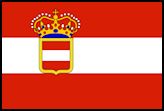
In Paknam (ปากน้ำ) ankert die österreichische Kriegskorvette S.M.S. Erzherzog Friedrich. Sie kommt von Manila und fährt weiter nach Singapur. Reisezweck: Weltreise. Überreichung des Beglaubigungsschreibens des Ministerresidenten in Siam.
Abb.: Schraubenkorvette S.M.S. Erzherzog Friedrich, 1868
[Bildquelle: Wikimedia. -- Public domain]
1875-02-25 - 1908-11-14

Der 3 Jahre alte Guāngxù (光緒, 1871 - 1908) wird Kaiser von China. Bis 1889 ist seine Tante Cixi (慈禧, 1835 - 1908) Regentin. Ebenfalls wieder ab 1898.
Abb.: Regentin Cixi (慈禧, 1835 - 1908), 1803
[Bildquelle: Wikipedia. -- Public domain]
"Cixi (chinesisch 慈禧 Cíxǐ, IPA (hochchinesisch) [tsʰɯ2ɕi3], W.-G. Tz'e Hsi; * 29. November 1835; † 15. November 1908 in Peking) war eine Nebenfrau des chinesischen Kaisers Xianfeng (咸豐) und wurde zur einflussreichsten Persönlichkeit der späten Qing-Dynastie ( 清朝). Von 1861 bis 1872 führte sie als „Kaiserinwitwe“ (chin. huángtàihòu, 皇太后) die Regentschaft für ihren Sohn, den minderjährigen Kaiser Tongzhi (同治), und von 1875 bis 1889 für ihren Neffen, den minderjährigen Kaiser Guangxu (光緒). 1898 übernahm sie erneut die Regierungsgeschäfte, nachdem sie Guangxu unter einem Vorwand hatte inhaftieren lassen, und behielt die Macht dann bis zu ihrem Tode inne. Sie regierte damit länger als jede andere Kaiserin. Historisch betrachtet gehört sie zu den zwiespältigsten Personen der chinesischen Geschichte. Innenpolitisch versuchte Cixi ausgleichend zwischen den konservativen und reformorientierten Fraktionen des Hofes zu wirken, um so die Macht des Kaiserhauses erneut zu festigen und das im Niedergang befindliche Land wieder zu stabilisieren. Dabei unterliefen ihr immer wieder schwere Fehleinschätzungen der wirklichen Lage, die etwa in der Katastrophe des Boxeraufstands und einer völlig verspäteten Reformpolitik endeten. Dies hatte auch in der Außenpolitik schwerwiegende Folgen; das technisch rückständige und wirtschaftlich schwer angeschlagene China verlor nun endgültig seine Hegemonialstellung in Ostasien.
Der Aufstieg der Cixi von der unbedeutenden Nebenfrau zur einflussreichen Kaiserinwitwe beschäftigte bereits die Phantasie ihrer Zeitgenossen. Ihre Palastkarriere wurde vor allem im Westen mit einem Reigen von Morden, sexuellen Perversionen und Intrigen in Verbindung gebracht. Maßgeblich für dieses Zerrbild ihrer Persönlichkeit war eine bereits 1910 erschienene Biographie von Edmund Backhouse, welche die Kaiserinwitwe als niederträchtige und degenerierte Persönlichkeit schilderte. Romane und Erzählungen des westlichen Kulturkreises griffen dies auf und charakterisieren Cixi als ehrgeizig agierende Frau, die ihre Aufnahme in den kaiserlichen Harem und den Aufstieg innerhalb der Palasthierarchie gezielt plante und betrieb. Zu den bekanntesten ihr Leben so thematisierenden Erzählungen zählt der Roman Das Mädchen Orchidee von Pearl S. Buck.
In den 1970er Jahren wiesen verschiedene Historiker wie Hugh Trevor-Roper nach, dass die chinesischen Quellen, auf die sich Edmund Backhouse stützte, Fälschungen waren.[1] Die moderne Geschichtsschreibung zeichnet heute ein deutlich nüchterneres Bild der letzten Regentin Chinas als Backhouse: Nur weil Cixi den einzigen Sohn des Kaisers gebar, konnte sie innerhalb der Palasthierarchie aufsteigen. Nach der Macht griff sie anscheinend nur, weil Streitigkeiten um die Nachfolge des toten Kaisers sowohl ihr Leben wie auch das Leben ihres Kindes in Gefahr brachten."
[Quelle: http://de.wikipedia.org/wiki/Kaiserinwitwe_Cixi. -- Zugriff am 2011-11-26]
Abb.: Kaiser Guāngxù (光緒) (Mitte)
[Bildquelle: Wikipedia. -- Public domain]
"Guāngxù (chines. 光緒, * 14. August 1871; † 14. November 1908, Kaiser ab 25. Februar 1875) entstammte einer Nebenlinie der Qing-Dynastie ( 清朝), wurde aber dennoch von seiner Tante Cíxǐ (慈禧) adoptiert und als Nachfolger ihres Sohnes, des Kaisers Tongzhi (同治), durchgesetzt. Am 25. Februar 1875 bestieg er im Alter von drei Jahren den Drachenthron. Guāngxù war ein kränklicher, willensschwacher Knabe, dessen Stimme infolge einer schweren Lungenkrankheit für Fremde nahezu nicht vernehmbar war. Bis zu seiner Volljährigkeit 1889 führte Cíxǐ die Regentschaft, aber auch danach behielt sie erheblichen Einfluss auf die Regierungsarbeit. Einer der wenigen bedeutenden, von Kaiser Guāngxù autonom getroffenen Maßnahmen, war die sog. Hundert-Tage-Reform von 1898 (戊戌变法), die von Cíxǐ alsbald erstickt wurde. Diese Reform nahm sie zum Vorwand, den Kaiser zu entmachten. Sie ließ Guāngxù verhaften und auf einer Insel im südlichen Palastsee internieren. Sie beraubte ihn sämtlicher kaiserlichen Privilegien. Die meisten seiner Berater (wie z. B. Tan Sitong - 谭嗣同) wurden auf Cíxǐs Befehl hingerichtet oder verbannt, nur zwei von ihnen wurden durch den Kaiser rechtzeitig gewarnt, Kang Youwei ( 康有為) und Liang Qichao (梁啟超), die nach Japan flohen. Die Macht lag faktisch wieder ausschließlich in ihren Händen.
Guāngxù starb 1908, einen Tag vor seiner Tante. Als offizielle Todesursache wurde eine Nierenschrumpfung infolge der Tuberkulose angegeben, an der der Kaiser seit 1907 litt. Es wird jedoch vermutet, dass ihn die auf dem Sterbebett liegende Cíxǐ vergiften ließ, damit Pu Yi (愛新覺羅•溥儀), der Sohn des Prinzen Chun II. (醇親王), zu ihrem Nachfolger wurde.
Literatur
- Wolfram Eberhard: Geschichte Chinas. Kröner, Stuttgart 1971
- John King Fairbank: Geschichte des modernen China. 1800–1985. 2. Auflage. dtv, München 1989, ISBN 3-423-04497-7
- Jacques Gernet: Die chinesische Welt. Suhrkamp, Frankfurt am Main 1988, ISBN 3-518-38005-2
- Gisela Gottschalk: Chinas große Kaiser. Pawlak, Herrsching 1985, ISBN 3-88199-229-4
- Jonathan D. Spence: Chinas Weg in die Moderne. Hanser, München 1995, ISBN 3-446-16284-4"
[Quelle: http://de.wikipedia.org/wiki/Guangxu. -- Zugriff am 2011-11-26]
1875-02-25
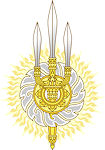
Königliches Dekret über den Uparat (มหาอุปราช / Vizekönig):
"And We do further declare and define, that for the due security and Protection of Our Well beloved and trusted Cousin's [ Bovorn Vichaichan - กรมพระราชวังบวรวิไชยชาญ, 1838 - 1885] Honor and Dignity We authorize him to enroll, equip and retain for service, armed with muskets or small arms, a Force of Two Hundred Men, which, unless at times when We may require their aid under Our Sign Manual, shall be under the command of Our said Cousin, and shall be limited to the residence, wherever that may be of Our said Cousin. And that upon Us alone, devolves the grave and serious cares and responsibilities of all measures for the internal peace of Our Kingdom, so all ships, arms and ammunitions of war within Our Kingdom, can be alone held or owned under Our Sole Authority or licence."
[Übersetzt in: Battye, Noel Alfred <1935 - >: The military, government, and society in Siam, 1868-1910 : politics and military reform during the reign of King Chulalongkorn. -- 1974. -- 575 S. -- Diss., Cornell Univ. -- S. 204]
1875-03-11

Sir Andrew Clarke (1824 - 1902), Governor of the Straits Settlements, an Henry Howard Molyneux Herbert (1831 - 1890), 4. Earl of Carnarvon, Secretary of State for the Colonies:
Abb.: Sir Andrew Clarke
"Governor. Sir A. Clarke, to the Earl of Carnavon.
No. 66, Government House Singapore,
11th March 1875My Lord,
I have the honour to transmit to your Lordship herewith copy of a Despatch addressed to me by Mr. W. H. Newman, H. B. M. 's [His British Majesties] Acting Consul General in Siam, containing a request for my presence of Bangkok, a course authorised by Lord Derby's [Außenminister Edward Henry Stanley, 15. Earl of Derby, 1826 - 1893] telegram of the 18th January and confirmed by Your Lordship's telegram to me of the 6th February directing me to repair to Siam in order to effect if possible an arrangement of the difference which had arisen between the two Kings of that country and which had eventually culminated in the flight of the latter from his palace. Mr. Newman states that he and the French Consul had endeavoured to effect an amicable settlement, but had not been successful, and that the Second King [วังหน้า] had sought and obtained refuge at the British consulate on the 1st January where he still remained. Mr. Newman further reports in his Despatch that trade and commerce were in great measure stopped owing to the apprehension felt by the mass of the mercantile population, and transmits certain articles of agreement which had been drawn up by the Second King but which did not afford any probability of a reconciliation.
2. On the 13th ultimo I left Singapore accompanied by Admiral Ryder [Sir Alfred Phillipps Ryder , 1820 - 1888, Commander-in-Chief, China] who had courteously offered me a passage to Siam in H. M. S. "Vigilant" [1871 - 1886], and on the 19th crossed the bar of the river Meinam [แม่น้ำเจ้าพระยา] and proceeded up the river to Bangkok, having previously sent a letter (copy herewith) to His Majesty the First King informing him of my arrival and placing my good offices at his disposal.
3. His Majesty in answer sent in one of his steam yachts a deputation to meet me on my way up the River with instructions to repair on board the vigilant and to present me with a letter from the Minister for Foreign Affairs, and I also received a letter from the Ex-Regent welcoming me to Bangkok.
4. The cordial reception thus accorded by the First King taken together with the letter he had previously written to me soliciting my sympathies in his difficult position led me to hope that His Majesty might be induced to view me in the light of an advisor, anxious only to prevent the continuation of a difference which threatened the commercial property of his dominions, rather than to regard me as an officious or even an official mediator and prompted by this desire I requested Mr. Newman to arrange if possible that my first interview both with the First and with the Second King should be of a strictly private character.
5. To this some opposition was shown as I had expected by the Ministers of the First King; but Mr. Newman succeeded eventually in obtaining the promise of a confidential interview for the next day (20th February) even though at the last moment His Majesty's Minister for Foreign Affairs endeavoured to thwart my wishes by stipulating that unless the Senabodee [เสนาบดี] (the Council composed of the five leading men in Siam) was allowed to be present neither were any of the recent events to be discussed.
6. This stipulation I declined to entertain but at the same time I could not but feel that my position would be much strengthened
if the King could indeed make the first overtures and I thought that His Majesty would be much more likely to place confidence in me at a private interview than at a public audience.7. In this I was not disappointed, at the private interview which took place in the afternoon of the 20th February, I sedulously refrained from talking on any but the most commonplace topics and His Majesty at first was equally careful in abstaining from any mention of political subjects; after about half an hour however, the First King suddenly plunged in medias res and, after thanking me for coming to Bangkok, referred to the lamentable differences that existed between himself and the Second King. His Majesty however was very careful about compromising himself and it was not until this conversation had lasted some two hours and a half that I succeeded in evincing His Majesty's confidence by convincing him that I was really unbiased in the question between him and the Second King and only anxious to arrive at a fair and equitable settlement of them.
8. I protracted this interview because I felt that on it hinged to a great extent the success of my mission. If I could once induce the First King to place implicit confidence in me, I anticipated that I should find an easier task in dealing with the Second King. And with the powerful nobles of the Kingdom. At the same time it was a matter of difficulty for an entire stranger to be entrusted with matters so delicate at once, and yet delay I know would be fatal to any decisive settlement. The issue was doubtful for sometime. His Majesty was evidently afraid of being out-manoeuvred and sometimes after asking my advice, would half draw back as if afraid that he had gone too far; but before the interview finally concluded His Majesty asked me to read all the correspondence that had passed between himself, the Senabodee and the Second King previous to my arrival and after weighing all that he himself had urged during our conversation to advise him what course he should adopt in order to settle the existing differences.
9. When I left His Majesty therefore I was in hopes that fair progress had been made and that unless His Majesty should be dissuaded from abiding by my intervention, my advice in this matter would have influence with him.
10. My very first aim on arrival had been to discover if possible what had given rise to the rupture between the two monarchs and I had been puzzled, because after carefully sifting a considerable amount of evidence I had been unable to discover any over-act committed by either one of them which might have given offence to the other. After this interview, I was thoroughly convinced that no real ground of quarrel existed, but that the present state of affairs had been brought about by a feeling of mistrust commencing in gradual estrangement and ending at length in this open rupture. At first sight, it might appear that my task would have been much facilitated after this discovery; but in reality I found that this vague feeling of jealousy was more difficult to remove than would have been any tangible ground of complaint on either side, which might have been carefully analysed and an opinion arrived at. Instead of this at every turn, I was met by this want of confidence the one in the other, which commencing years before had been long fostered by ambitious people on both sides, anxious to gain their own aggrandisement by playing off one king against the other, and which had now reached to such a pitch that throughout the court there existed a general mistrust which I found great difficulty in averting even from myself.
11. The results of this were everywhere visible. The palace in which the first King resided could only be reached in passing through massive gates at each of which was posted by night and by day a strong guard of soldiers. In fact these soldiers were rather a guard than an army although it was styled by the latter name. Similarly the Second King had an army stronger in artillery (it was stated) than that of the First King and some of the great nobles also had guards at their houses.
12. It is of course in such cases difficult to distinguish between action and reaction whether the jealousy was caused by the maintenance of these bodyguards or whether their very maintenance caused the feelings of mistrust to which I have already alluded.
13. Similarly the First King, the Second King, the Ex-Regent, the Kalahome [งกลาโหม] (Minister or War) the Kromatah [กรมท่า] (Minister of Foreign Affairs) had each and all their several revenues or rather perquisites, instead of all the revenues of the State being paid into the Royal Treasury and each public servant receiving a fixed income.
14. As far as I could ascertain his question of the collection of revenues coupled with the First King's proposal for the manumission of all serfs in the realm had made the Second King fear that in some proposed new arrangements his interests might suffer, and it was with this object in view that I resolved to substitute another form for the "Articles of Agreement" which had hitherto passed between the two Kings, and for the channel of communication through which they had passed as they appeared to me hardly likely to effect a reconciliation. The matter up to this time had been put in the hands of the Senabodee. This Senabodee had drawn up four articles of agreement and on the First King's approval of them had submitted them to the Second King. The second King had increased the number of articles to 10 to which the Senabodee had made remarks, and these remarks had been again submitted to the Second King, who was not disposed to accept them in the entirety.
15. On the 21st therefore the morning after my interview with the King, I drew up a draft of a Decree of which a copy is transmitted and forwarded to the First King with a covering letter, and was much gratified when I received an answer from His Majesty (copy herewith) accepting the Decree but stating that it would be necessary for him to consult his Ministers after an interview with me on the subject. I ascertained at the same time privately that the Decree would be accepted by the Second King and consequently now had only the opposition of the leaders of the Senabodee to contend against.
16. This opposition however I had anticipated and to a certain extent disarmed by a long conversation which I had had on the evening of the 20th with the Ex-Regent, a veteran statesman of undoubted capacity whose influence in the country is great and in the Senabodee is paramount. True I had failed to elicit from him any definite promise of support, for he was far too shrewd to commit himself hurriedly, but I had gathered enough to assure myself that if my influence with the two Kings was once firmly established, the Ex-Regent would not venture to oppose himself.
17. On the morning of the 22nd I was not surprised when I he First King's Secretary waited on me and intimated His Majesty's wish that I should see him without loss of time. I proceeded to the Palace without delay and had another long and confidential interview with the First King. His Majesty had now thrown off his reserve and treated me with perfect frankness and without a vestige of that mistrust which he could not help occasionally showing at our first conversation. The Decree had been translated to him and His Majesty now went over it carefully with me and eventually adopted in it its entirety, although he could not help adding it was a "novelty in Siamese politics. "
18. This interview also lasted some three hours and I made it one of my chief objects to impress upon the First King that the only chance of living in unity with the Second King was by cultivating a friendly intercourse and by strongly refusing to lend an ear to rumours spread by political intriguers whose ends were furthered by causing dissidence and by fomenting discord between the two monarchs.
19. When I took my leave, it was arranged that the Decree should be again translated most carefully and without delay - that a copy of it was to be shown to the senabodee and a duplicate copy sent to me to submit to the Second King, and should its contents be agreed to, that a meeting between the two Kings should take place at the First King's Palace, the senabodee and royal family being present, and that the senabodee should sign first as guarantor, then the Second King and lastly that the First King should approve and ratify the agreement.
20. On the 23rd, His Majesty the First King invited me to be present at a boat race and I had an opportunity of some private conversation with him.
21. On the 24th, I was invited by the Ex-Regent to visit him at his house and was the more glad to have an opportunity of a conversation with him as I had had reason to suspect that he was lukewarm in his desire for the proposed settlement of affairs. In the same afternoon I received the duplicate of the translation of the Decree and repairing with it to the British Consulate, obtained the assent of the Second King to its provisos after a lengthened conference.
22. On the morning of the 25th, the Ex-Regent and the Second King meet on board H. M. S. "Vigilant" and after some discussion, His Majesty the Second King agreed to return to his palace at once and the Ex-Regent to sign the Decree, a signature which would carry with it the remainder of the senabodee. Accordingly at about 11 a. m., the Second King left the consulate in a steam launch and some two hours later he repaired to the Palace of the First King and a reconciliation was effected and the Decree signed as had been previously arranged, first by the senabodee, then by the Second King, and finally approved by the First King.
24. The same afternoon, Admiral Ryder and myself went up to stay at a Palace which the First King had prepared for us and the evening had the honour of dining with His Majesty at a private dinner party and of holding a long conversation with him.
25. His Majesty the Second King had by this time freed himself from his anxiety as to his reception by the First King and on my taking leave of him expressed his gratitude to me for the settlement which had been effected by which he had been enabled to return to his palace with his former privileges, and appeared to be confident that the difference would not occur again. I took this opportunity of informing the Second King that a great deal depended upon the cordiality with which he met any overtures which the First King might be inclined to make to him and that he was in no way to be discouraged even if difficulties were encountered at first, but evince by his perseverance that he was resolved to be loyal to his cousin, the First King.
26. Later in the day I accompanied the First King on an expedition up the river and on returning to the palace took my leave of him and left Bangkok the same evening.
27. His Majesty on parting thanked me for my visit to Bangkok and for what he called its fortunate results and hoped that, although he knew our government did not allow its public servants to accept presents, there would be no objection to my allowing him to have a portrait painted by an eminent artist when next I visited England and to his keeping one copy for himself and presenting another copy of this picture to the Residents of Singapore.
28. I would beg to call your Lordship's attention to the hearty co-operation and assistance afforded me by Admiral Ryder in this mission, the success of which was much enhanced by that officer's presence.
29. I would further bring forward for your Lordship's consideration the seal with which Major McNair and Lieutenant Brackenbury, A. D. C., who accompanied me from Singapore carried out their instructions, and the tact with which both performed some delicate negotiations with the Siamese with which I entrusted them from time to time during my visit.
30. I would also request Your Lordship to express to the Foreign Office the thanks which are due from me to Mr. W. H. Newman, Her Britannic Majesty's Acting Consul General at Siam for the valuable cooperation which he rendered me throughout this delicate mission and for the information which he was able to put me in possession of information, which from his thorough knowledge of the Siamese language and his experience of their character, was of the greatest value.
31. In conclusion I would remark that the commerce in rice, in minerals and in timber between these settlements and Siam is an important feature in British trade. Of this I had a very favourably opportunity of judging for myself when I accompanied the King up the River Meinam on the 26th February, as His Majesty pointed out both banks of the river were lined thickly by rafts of timber and crowds of boats laden with rice from the interior which having reached Bangkok could not obtain shipment to other ports as all commerce had been paralysed by what really amounted to an abdication on the part of the Second King - a step so serious that the Chinese, who in reality outnumber the Siamese population and are in effect the backbone of the industry of the country, had lost confidence and would no longer venture in commercial enterprise, being deterred by the fear of an outbreak of the more unruly spirits among their countrymen who would on the slightest pretext have been glad to make the quarrel between the disastrous results of which were so forcibly exemplified by the protracted struggle in Larut [لاروٹ] between the Go-Kwans and the Si-Kwans [wohl: 海山 vs. : 義興].
32. There are still I fear many discordant elements in Siamese politics which may possibly again lead to difficulties, but I venture to express a hope that for some time to come the relations between the First and Second Kings may remain undisturbed and that the complication caused by a monarch becoming a refugee under the British Flag will not be repeated.
I have etc.
And. Clarke.The Right Honourable
The Earl of Carnavon,P. S. I should have mentioned that on receiving together all the foreign consuls including those of France, the United States, Austro-Hungary, Denmark, the German Empire, Italy, Sweden & Norway and Portugal, I thanked them for the unanimous support and co-operation which they had shown to Mr. Newman and explained to them the solution of the existing difficulties which I had submitted to the King and which seemed to meet with their full assent."
[Zitiert in: Manich Jumsai [มานิจ ชุมสาย] <1908 - 2009>: History of Anglo-Thai relations. -- 6. ed. -- Bangkok : Chalermnit, 2000. -- 494 S. : Ill. ; 21 cm. -- S. 149 - 159]
1875-05-13


Jean Moura (1827 - 1885), französischer Resident in Kambodscha: "Cope d'une note relative à un entretien entre le 2e Roi du Cambodge et le Représentant du Protectorat, au sujet de certaines réformes à introduire dans notre traité et dans l'administration du pays, Pnomh Penh, 13 May 1875:
"Since Cambodia is under the protection of France it is peaceful within and sheltered from foreign invasions. . . . Formerly, there was always war. . . . Today the officials have homes built of masonry which they never dared have before; thoughtful men are setting themselves up in a more comfortable fashion; the chief monks are rushing to erect suitable pagodas. . . . But the people do not have enough of your advice and counsel in matters connected with administration and finance. You have the whole people for you . . . you also have some honest and intelligent officials who know your intentions, but you cannot hide from yourself the fact that you are an obstacle for the majority of the officials, who most certainly wish that you would close your eyes to their conduct and would only appear to shoot down the people when, by chance, they cry out against the injustices and spoliations to which they are subjected today." [Übersetzt in: Osborne, Milton E.: The French presence in Cochinchina and Cambodia : rule and response (1859-1905). -- Bangkok : white Lotus, 1997. -- 379 S. : Ill. ; 20 cm. -- ISBN 974-8434-00-1. -- "First published by Cornell Univ. in 1969". -- S. 192]
1875-05-15


Bericht der französischen Gesandtschaft an den französischen Außenminister Louis Charles Élie Amanieu Decazes, 2e duc Decazes, 2e duc de Glücksberg (1819 – 1886):
""I have", Knox told me, "Full power from my government to act under my own authority as I understand it to prevent this country falling into anarchy. " This means that my colleague will take it upon himself to assure the succession of the Wangnah [วังหน้า] [Prince Wichaichan] [กรมพระราชวังบวรวิไชยชาญ, 1838 - 1885] should the first king die. On their side, the young Siamese who make up the Privy Council, condemned to oblivion since the recent affair, have formed, under the name "Young Sian Society", a circle in which the partisans of the younger brother of the first king [Prince Phanurangsi] [สมเด็จ พระเจ้าบรมวงศ์เธอ เจ้าฟ้าภาณุรังษีสว่างวงศ์ กรมพระยาภาณุพันธุวงศ์วรเดช,1859–1928] have re-united; there are assurances that they have taken an oath to proclaim this prince, aged eighteen, if the throne chances to become vacant. " [Übersetzt in: Battye, Noel Alfred <1935 - >: The military, government, and society in Siam, 1868-1910 : politics and military reform during the reign of King Chulalongkorn. -- 1974. -- 575 S. -- Diss., Cornell Univ. -- S. 206]
1875-05-15

Bei Paknam (ปากน้ำ; heute: Samut Prakan - สมุทรปราการ) stoßen zwei Handelsschiffe - beide auf dem Weg nach Singapur - bei einem Überholmanöver zusammen, die britische Rajanatti und die siamesische Bangkok. Der britische Generalkonsul Thomas George Knox (1824 - 1887) entscheidet, dass die Schuld bei der Rajanatti liegt. Das britische Foreign Office bestätigt das Urteil.
Abb.: Lage von Paknam (ปากน้ำ; heute: Samut Prakan - สมุทรปราการ)
[Bildquelel: Baedeker's Indien, 1914]
1875-05-20
Paris: Internationale Meterkonvention (Convention du Mètre). 12 Signatarstaaten einigen sich auf das metrische System. Siam tritt 1912 bei.
Abb.: Die metrischen Einheiten, 1800
[Bildquelel: Wikimedia. -- Public domain]
1875-05-26

Das deutsche Kanonenboot SMS Cyclop (1874 - 1914) läuft in Bangkok ein.
Abb.: SMS Cyclop
[Bildquelle: Wikimedia. -- Public domain]
1875-06-01 - 1875-07-19
St. Petersburg (Russland): 4. Plenipotentary International Telegraph Conference. Völlige Neufassung der International Telegraph Convention von 1865. Siam tritt am 1883-05-02 bei.
1875-09 - 1876-09
Es erscheint die Tageszeitung
Court = หนังสือคอตข่าวราชการ [Hof-Neuigkeiten]. -- 1875 - 1876. -- Herausgeber sind 11 jüngere Brüder Ramas V.
Abb.: Titelblatt1923 lässt Prinz Bhanurangsi Savangwongse (สมเด็จ พระเจ้าบรมวงศ์เธอ เจ้าฟ้าภาณุรังษีสว่างวงศ์ กรมพระยาภาณุพันธุวงศ์วรเดช,1859–1928) anlässlich seines Geburtstags diese Zeitung in zwei Bänden nachdrucken.
Abb.: Titelblatt von Bd. 2 des Nachdrucks
1875-11-02
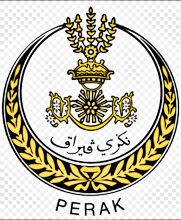
Perak (ڨيرق): Ermordung des britischen Residenten James Wheeler Woodford Birch (1826 - 1875).
Abb.: Lage von Perak (ڨيرق)
[Bildquelle: Constables Hand Atlas of India, 1893. -- Pl. 59]
Abb.: James Wheeler Woodford Birch
"James Wheeler Woodford Birch, commonly known as J. W. W. Birch (3 April 1826 – 2 November 1875) was the first British Resident in Perak (ڨيرق), Malaysia. He was appointed to the post on 4 November 1874 as the government adviser to the Sultan of Perak following the signing of the famous Pangkor Treaty on 20 January 1874, which established Perak as a British protectorate state. He was the Colonial Secretary of the Straits Settlements between 1870 and 1874. Assassination
Birch was killed on 2 November 1875 by followers of a local Malay chief, Dato Maharajalela ( - 1877) including Seputum, who speared him to death while he was in the bath-house of his boat, SS Dragon, moored on the Perak river-bank below the Maharajela's house, in Pasir Salak, near today's Teluk Intan (安順, Teluk Anson).
The reason of why Birch was assassinated because of his total disrespect to the local custom and tradition, and conflict with local Malay chiefs. He was a 'bull in a china shop'. Birch was arrogant and disrespectful of local customs and even of the "pretender" Sultan Abdullah who sooned tired of Birch and conspired with Sultan Ismail that Ismail should not surrender the royal regalia to him, Abdullah, or to the British, so that he could not be installed to the benefit of Birch and the British.
Richard O.Winstead in his "A History of Malaya" at p 226 published in the Journal of the Malaysian Branch of the Royal Asiatic Society, reprint 1986, wrote that a Malay deputation entreated with the Governor-General Andrew Clarke in Singapore "to prevent the Resident from interfering with religion and custom, from acting without consulting Sultan and chiefs, and from depriving them of their property, namely fugitive slaves and feudal dues." Clarke had already observed on 25 March 1875 that, " I am very much annoyed with Birch and the heads-over-heels way in which he does things; he and I will come to sorrow yet, if he does not mind." On 21 July 1875 Abdullah the Pretender Sultan, in despair, called a meeting of chiefs where after a talk of poisoning Birch accepted the Maharajalela's offer to stab Birch to death.
To most Perak Malays, Dato' Maharajalela is generally celebrated as a folk hero, due to his substantial contribution and seen to be a symbol of the Malay resistance against attempted Colonialism.
In the aftermath of the event, the administration shifted to Taiping (太平). Sultan Abdullah was deposed and sent to exile in Seychelles. His arch-rival Raja Yusof was made Sultan; Dato Maharajalela and others involved in the incident were hanged. A new Resident, Sir Hugh Low, not Sir Frank Swettenham, was appointed and went about his administration of Perak in a more diplomatic way. Whilst still banning outright slavery, he gradually phased out debt-slavery and assuaged the feelings of the Ruler and chieftains by voting adequate monthly compensations for them.
MemorialBirch's grave is located near the site of British fort at Kampung Pasir Pulai, about 24 km from Pasir Salak. Birch Memorial Clocktower was build in 1909 still stands today in front of the Ipoh State Mosque. Unfortunately one of the 44 figure on the clock's illustration was removed due to religious sensitivity.[1] Roads in Kuala Lumpur (كوالا لمبور) and Taiping were thought to have been named after him (Birch Road), but this was for a different Birch; ironically, the same road was later renamed after Dato Maharajalela (Maharajalela Road; Malay: Jalan Maharajalela) after Malaysia's independence in 1957. Similarly Birch Road also appeared in several towns in Malaysia, they were Seremban (سرمبن), Penang and Ipoh (إڤوه), also found in Singapore."
[Quelle: http://en.wikipedia.org/wiki/James_W._W._Birch. -- Zugriff am 2015-03-03]
1875-11-08
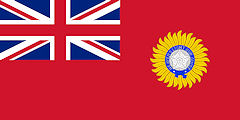
Albert Eduard von Sachsen-Coburg und Gotha (1841–1910), Prince of Wales, besucht erstmals Indien.
Abb.: Eduard von Sachsen-Coburg und Gotha (1841–1910), Prince of Wales im Terai (तराई), Nordindien, 1875/1876
[Bildquelle: Samuel Bourne (1834–1912) / Wikimedia. -- Public domain]
1875-11-24

Großbritannien kauft für fast 4 Mio. Pfund Sterling vom bankrotten Khediven (خديو) Ägyptens dessen Anteil an den Suezkanalaktien. Damit sichert sich Großbritannien die Kontrolle über den Kanal.
ausführlich: http://www.payer.de/thailandchronik/ressourcen.htm
Phongpaichit, Pasuk <ผาสุก พงษ์ไพจิตร, 1946 - > ; Baker, Chris <1948 - >: Thailand : economy and politics. -- Selangor : Oxford Univ. Pr., 1995. -- 449 S. ; 23 cm. -- ISBN 983-56-0024-4. -- Beste Geschichte des modernen Thailand.
Ingram, James C.: Economic change in Thailand 1850 - 1870. -- Stanford : Stanford Univ. Pr., 1971. -- 352 S. ; 23 cm. -- "A new edition of Economic change in Thailand since 1850 with two new chapters on developments since 1950". -- Grundlegend.
Akira, Suehiro [末廣昭] <1951 - >: Capital accumulation in Thailand 1855 - 1985. -- Tokyo : Centre for East Asian Cultural Studies, ©1989. -- 427 S. ; 23 cm. -- ISBN 4896561058. -- Grundlegend.
Skinner, William <1925 - 2008>: Chinese society in Thailand : an analytical history. -- Ithaca, NY : Cornell Univ. Press, 1957. -- 459 S. ; 24 cm. -- Grundlegend.
Mitchell, B. R. (Brian R.): International historical statistics : Africa and Asia. -- London : Macmillan, 1982. -- 761 S. ; 28 cm. -- ISBN 0-333-3163-0
Smyth, H. Warington (Herbert Warington) <1867-1943>: Five years in Siam : from 1891 to 1896. -- London : Murray, 1898. -- 2 Bde. : Ill ; cm.
ศกดา ศิริพันธุ์ = Sakda Siripant: พระบาทสมเด็จพระจุลจอมเกล้าเจ้าอยู่หัว พระบิดาแห่งการถ่ายภาพไทย = H.M. King Chulalongkorn : the father of Thai photography. -- กรุงเทพๆ : ด่านสุทธา, 2555 = 2012. -- 354 S. : Ill. ; 30 cm. -- ISBN 978-616-305-569-9
Donko, Wilhelm M. <1960 - >: Auf den Spuren von Österreichs Marine in Siam (Thailand). -- Berlin : epubli, 2012. -- 540 S. : Ill. ; 22 cm. -- ISBN 978-3-8442-2504-4